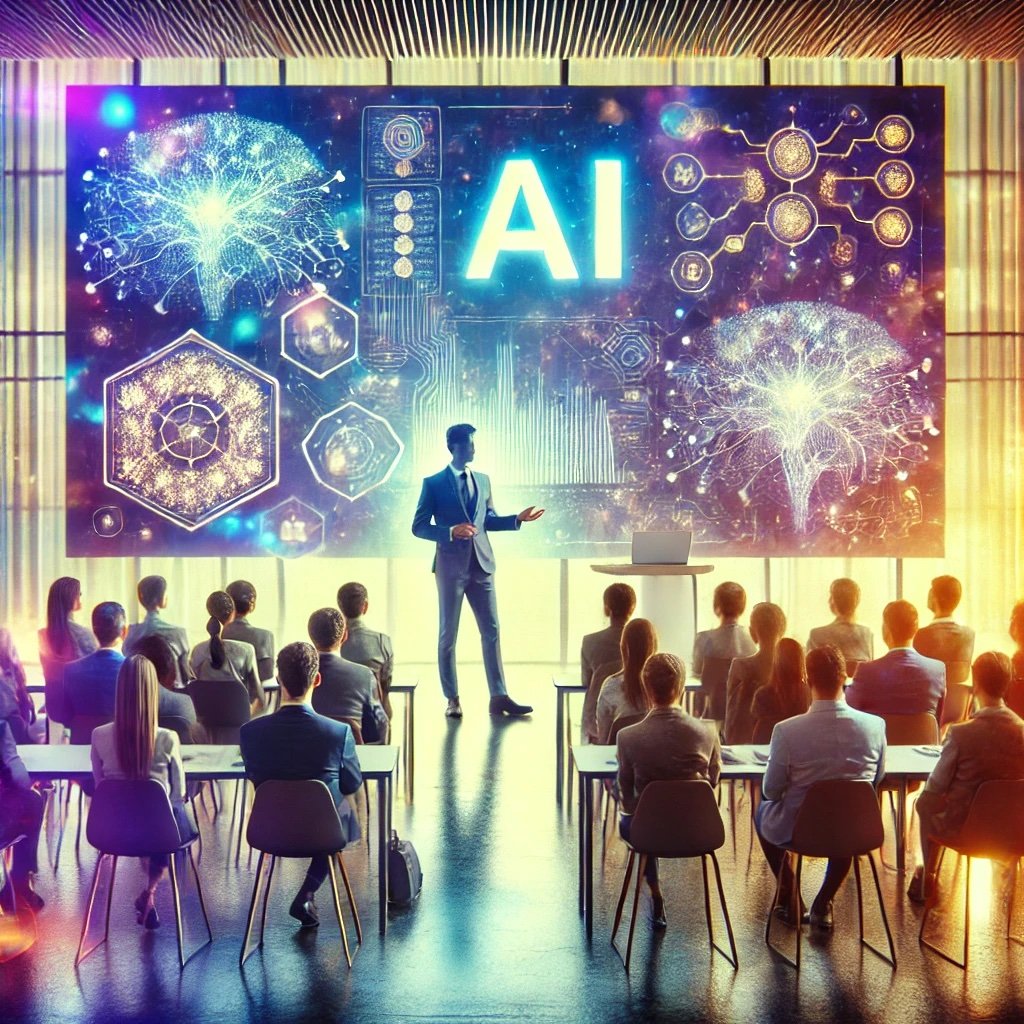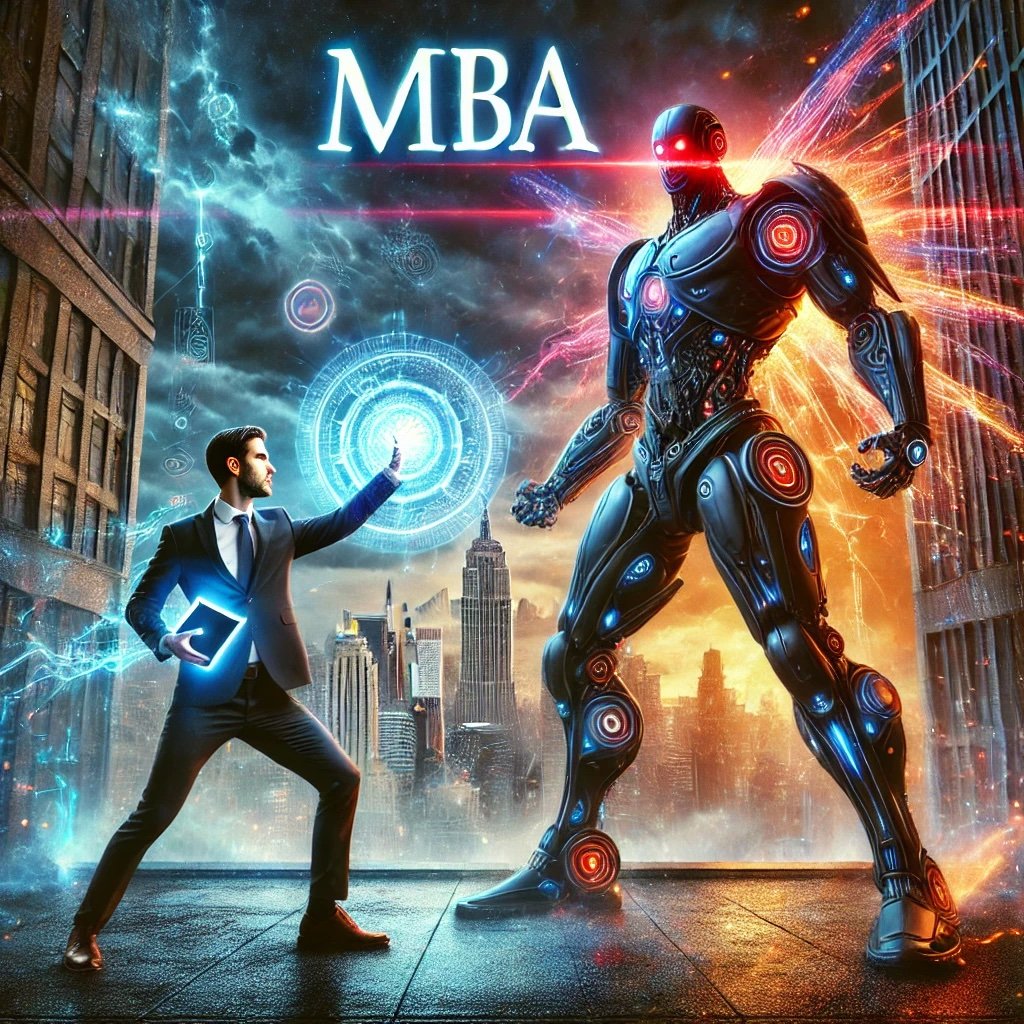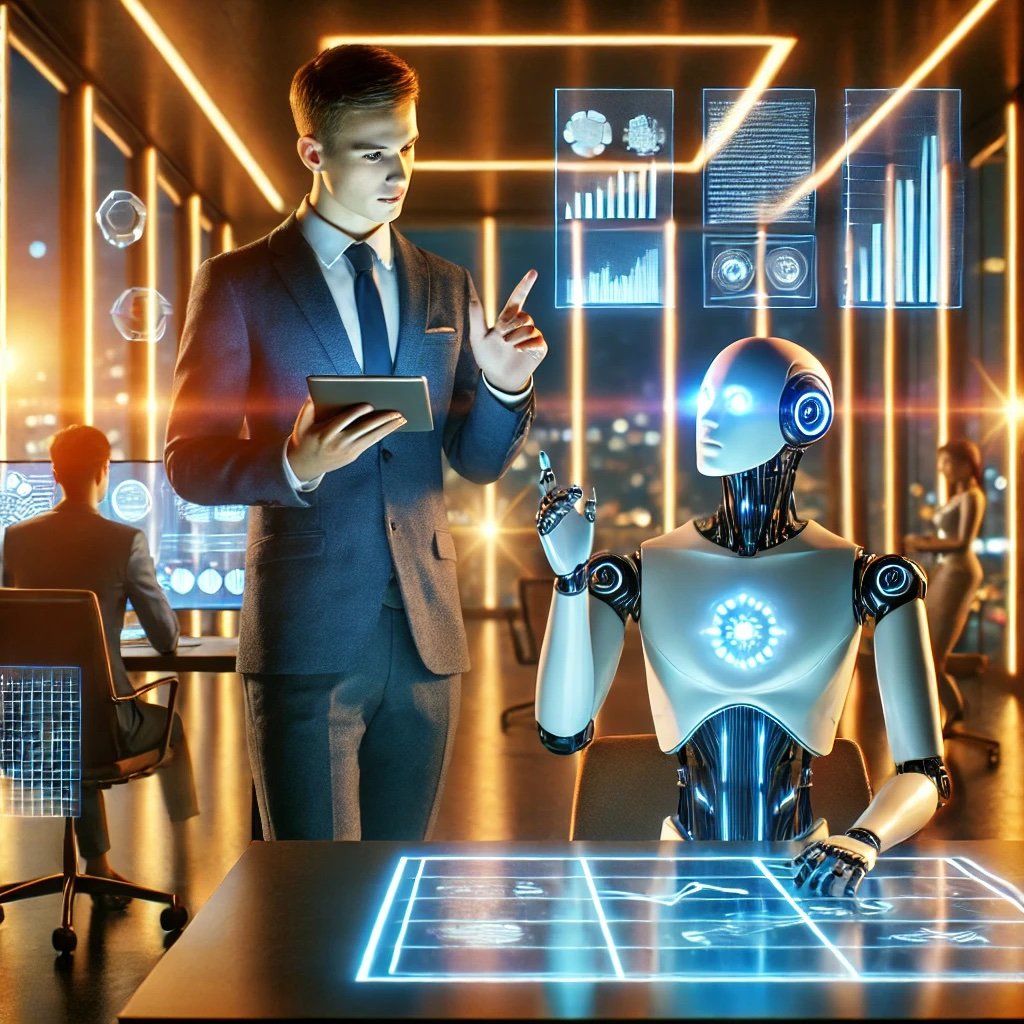An MBA Graduate vs. the AI Machine
How I learned to stop worrying and love the future
When reflecting back on my recently completed MBA, I keep coming back to a fundamental question: “How can I apply my skills and passions to make a meaningful, positive impact?”. On the first day of classes in January 2024, a wide-eyed room of 103 MBA candidates listened on as the Dean listed off — for the first time — the school’s AI guidelines and rules that included:
Do use AI for background research
Do Use AI for Proofreading and Editing
Do Not Use AI to Plagiarize
Do Not Substitute AI for Learning Fundamental Concepts
Do Not Overlook Copyright Laws:
(Full list can be found here: https://www.imd.org/degree/mba/program/ai-policy/)
While the rules and guidelines seemed simple enough, you could feel a sense of trepidation from the Dean. A microcosm of the greater educational world, IMD’s MBA program was entering uncharted water brought about by the emergence and proliferation of GenAI. I strongly support the program’s intentions to try to integrate AI into the learning experience, without letting the shiny new tools replace the critical thinking and business skills on which the school’s reputation was built. And anyway, surely a computer could never correlate complex business financials with emerging market conditions and develop a comprehensive go-to-market strategy in new regions better than an MBA graduate… right?
Well… maybe not. Fast-forward to today, January 2025, and after playing around with Google’s Gemini 1.5 with Deep Research, I will confidently declare that traditional strategic business thinking has been outpaced by AI models, and the gap will only continue to grow. Popular retorts against AI on topics of Explainability and Inference have been disproven in the latest GenAI models, and the sophistication of AI Agents and the rise of AI in robotics we will see in 2025 will change the world forever.
So where does that leave the MBA graduate equipped with Porter’s 5 Forces and a pile of student debt? Well, not all hope is lost. The world of business still needs people.
While it’s easy to sit back and complain that “AI is stealing my job”, it is more constructive to reframe this fear as an opportunity. Learning to work alongside AI will be the foundation of a successful career in the second half of 2020’s and beyond. I credit IMD for recognizing this fact ahead of most other business schools and creating projects that transformed my understanding of the intersection of AI and business.
One project in particular, led by AI, Analytics and Marketing Strategy Professor Amit Joshi, demonstrated a powerful use-case for GenAi in business. Teams of six students received a dataset of historical Airbnb rental prices for New York City from the last 10 years and were tasked with 1) clean the dataset of erroneous and incomplete data and 2) build a regression model to predict the prices of a hold out dataset whose actual prices were obfuscated from the students. While MBA students of the past built extensive linear regression models in Excel and scripted Python modules to predict prices, this year we had ChatGPT.
With some minimally clever prompt engineering, we were able to insert into ChatGPT 4o the 50,000 listings of training data to create the regression model, add the holdout data, and receive price predictions in a nice summary spreadsheet. This nice, simple 5–10 minute process achieved about 60-70% accuracy, which rivaled about the median scores that in previous years required the blood, sweat, and tears to produce. However, reaching the 80–90% accuracy range still required the implementation of critical data analytics and business know-how that ChatGPT (at least for now) could not reason through.
One key insight for more accurate prediction was adjusting prices for inflation; another was identifying the effect of seasonality on rental prices. We also discovered the importance of feature engineering, where you can identify different variables that may not be impactful on their own, but when logically combined with other factors may create interesting correlations to price. After we incorporated these insights as new parameters into our original training data, we saw accuracy scores as high as 93% (which I believe was a record for this 10+ year running project).
I find so much to unpack from my experience with the Digital Analytics Lab described above.
AI is powerful and can do an okay job effortlessly and cheaply
There is always a temptation to say “good enough” when working with AI. When we hit a wall at 70% accuracy using the raw dataset and ChatGPT, we were tempted to quit. (Anyway we had done better than most teams from previous cohorts; we deserve a pat on the back!)
AI raises the bar of acceptable work — not only in the context of developing linear regression models, but in productivity expectations, refinement in writing, and even creative brainstorming.
AI makes experimentation cheap and easy; in the project we had the opportunity to play around with countless types or regression models and strange parameter correlations with limited downside because models could be created and discarded in minutes.
AI still struggles to bridge datasets and real-world constructs. Because only the date of Airbnb listings were given in the dataset, we needed to explicitly add into the dataset 1) time of year and 2) days since listing to better capture seasonality and inflation trends.
There is still the opportunity for meaningful critical thinking in the AI world
So where does the MBA graduate looking for a job in a seemingly automated workplace go from here? I still use HBS professor Karim Lakhani’s quote as my North Star when thinking about AI in business.“AI Won’t Replace Humans — But Humans With AI Will Replace Humans Without AI”
(Link to article: https://hbr.org/2023/08/ai-wont-replace-humans-but-humans-with-ai-will-replace-humans-without-ai)
In the short and medium-term, business will need experts in change management that will facilitate the effective and ethical transition into AI led business processes. Impactful leaders will need to carefully balance and prioritize many stakeholders and critical risks in implementing meaningful AI. Any good MBA working on change management consulting will tell you to start with understanding and communicating with the people in the organization (or align relevant stakeholders in MBA jargon). Identify the relevant problems people are facing at work, establish data best-practices, and always be wary of unintentional consequences of automation. Creating buy-in and not eliciting fear should be at the cornerstone of every AI transition.
In the long-term, as AI matures and becomes more and more integrated into business process, humans will need to adapt to stay relevant. Emotional Intelligence (EQ) will become the differentiator for great leaders of the future. Coming into an era where financial algorithms, cashflow scenarios, and strategy planning will be commoditized by automated processes, people who are able to inspire others and build meaningful, trusting relationships will be the leaders that shine.
It seems fitting to end my first article with a (slightly modified) phrase that accompanied every paper and project submitted during my MBA:
I, David Hobbs, certify that I wrote this essay without with only a little help of any other person or AI, ML, or chatbot application (including ChatGPT), for contents. I also certify that all external sources that I have used in this essay are cited as specified by the MBA reference guideline.
*All images were generated using ChatGPT 4o


